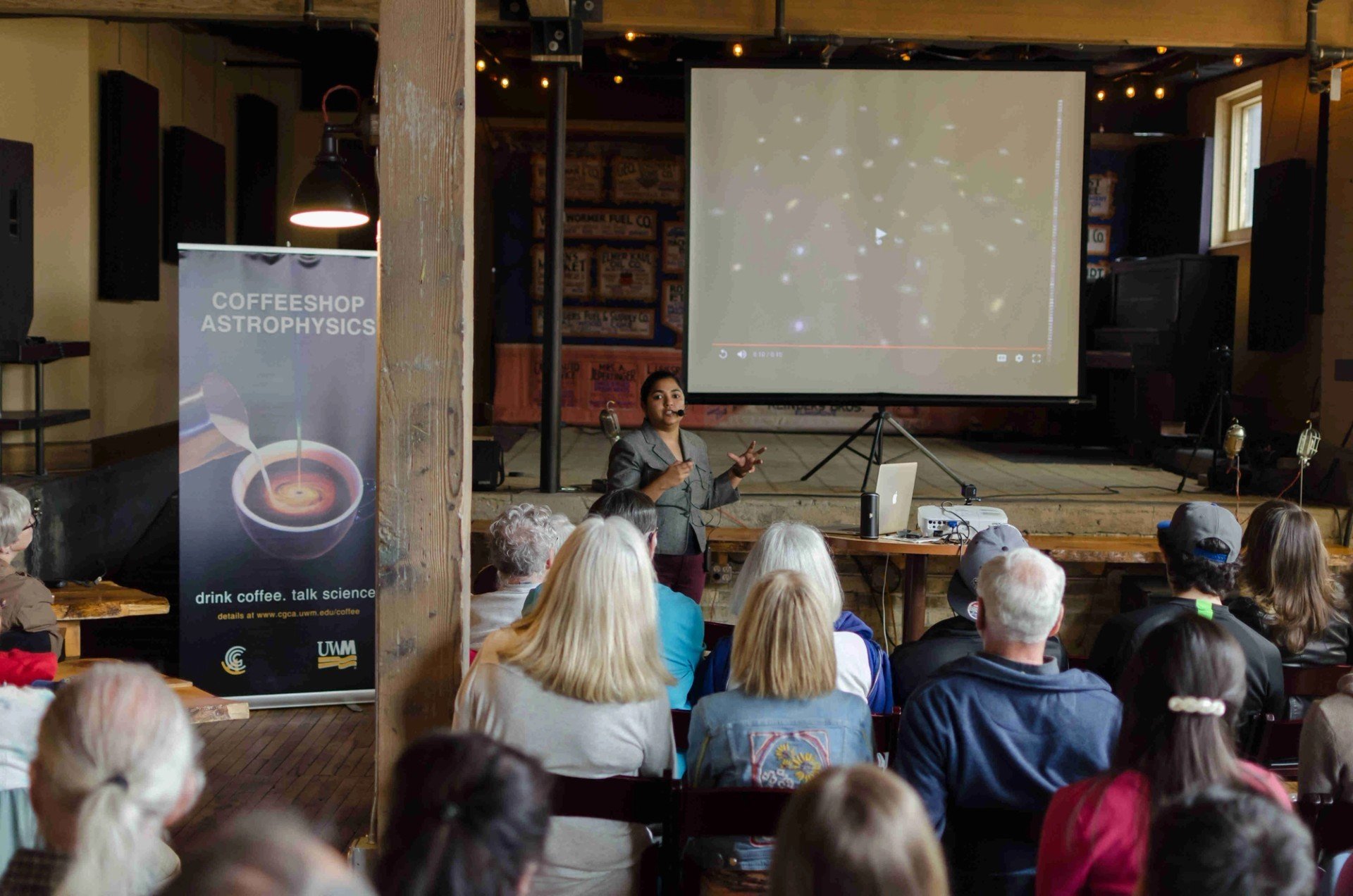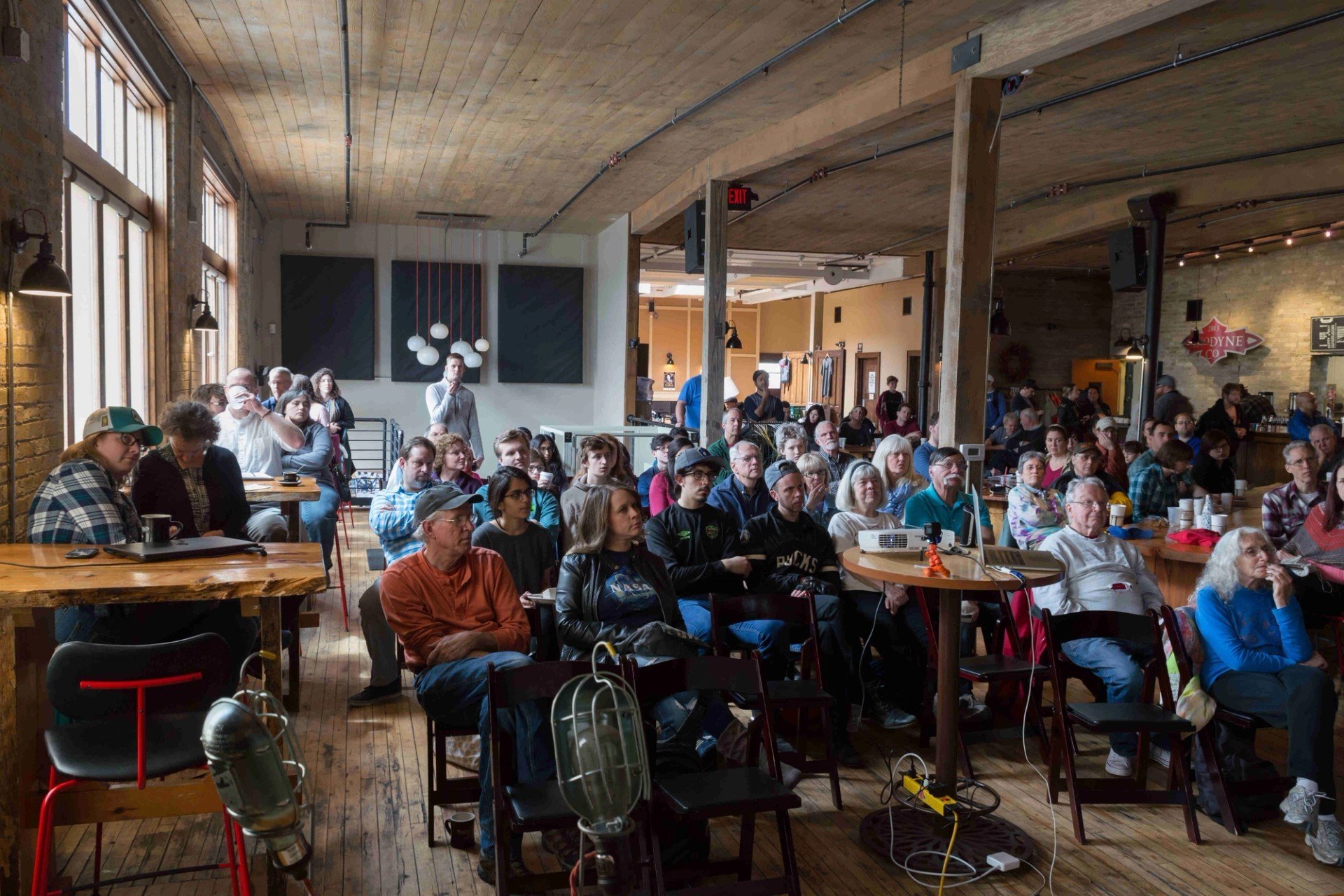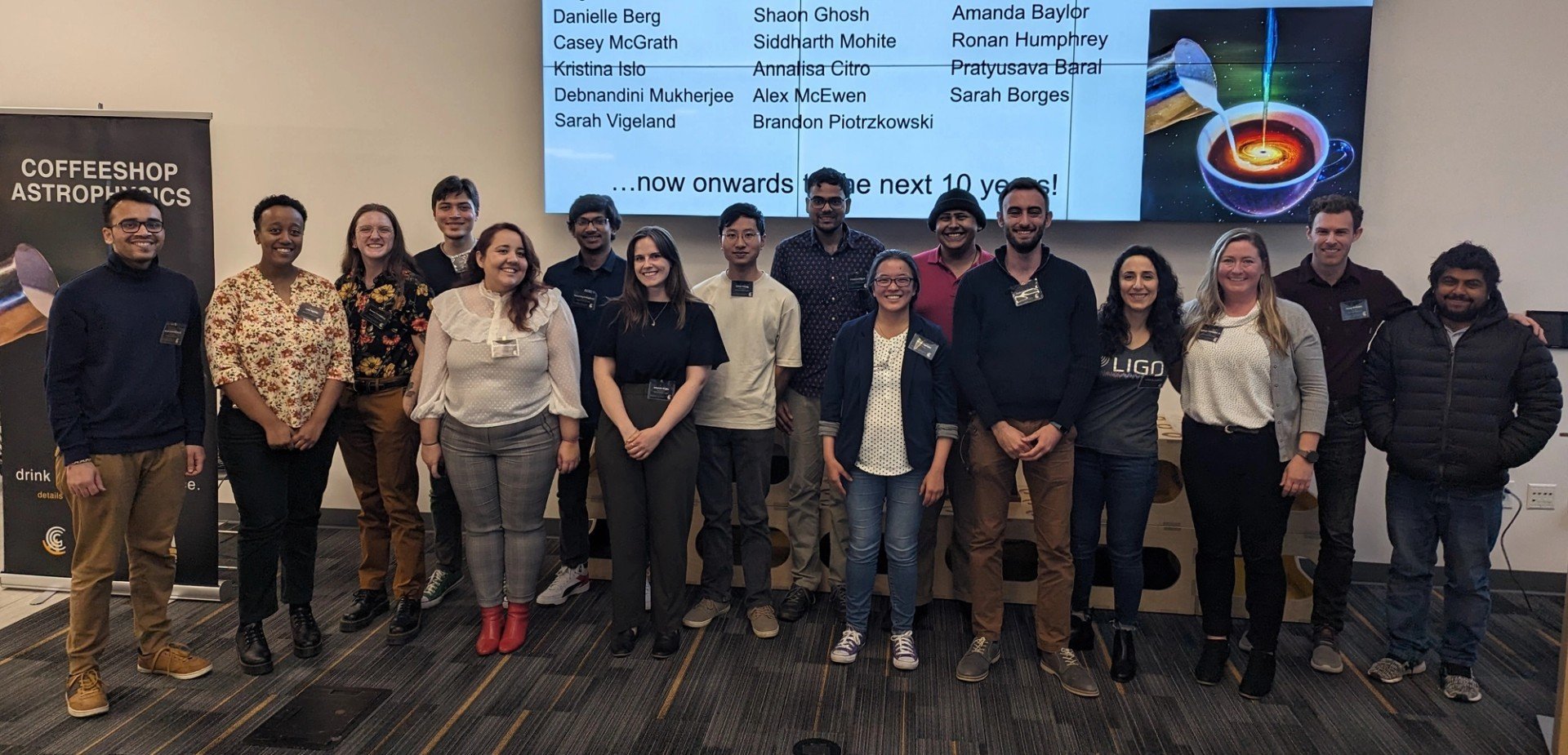At a Milwaukee Coffee Shop, Enjoy an Espresso. Or a Black Hole.
CoffeeShop Astrophysics, a graduate student-powered outreach program, has shared science in a local cafe since 2014.

On Saturday afternoons, patrons of Anodyne Coffee Roasting Co. in Milwaukee, Wisconsin, enjoy their double espressos and iced lattes with a dash of astrophysics. Some wander in for caffeine and, curiosity piqued, stick around, while others add CoffeeShop Astrophysics events to their calendars in advance. The program has a 10-year history of serving up science to the community.
It’s a fun and enthusiastic crowd to talk to, says Gabe Freedman, a fifth-year Ph.D. student and the program lead. “Maybe they don't have all the right ideas about [science], but that's why you're there,” he says. And when people get excited, “you can just feel the enthusiasm radiating off of them.”
The public engagement program is run by graduate students from the University of Wisconsin, Milwaukee’s Center for Gravitation, Cosmology, and Astrophysics (CGCA). Each event features a 45-minute talk, co-presented by two or three grad students, and a Q&A session.
Many public engagement programs feature scientists talking about their own research, but CoffeeShop follows a different model. Each semester, the group of 10 or so graduate students selects broadly appealing topics to highlight, then divides into smaller groups to write and present the talks, Freedman says. This lightens the load and facilitates collaborative efforts where, for example, more experienced presenters can mentor new ones. The group also meets for run-throughs to give presenters feedback before they talk at Anodyne.
Why a coffee shop?
“It’s easy with physics to intimidate people really fast,” says CoffeeShop founder Sydney Chamberlin. When she started the program in 2014, she prioritized an inclusive and accessible meeting space to lower the intimidation factor — which meant going off-campus. A friend connected her to the manager of Anodyne, a local coffee shop with a cafe in a historic city neighborhood, and the longstanding partnership began.

The cafe is cozy, complete with wood floors and ceiling, cream-colored brick, and mellow string lights — just the right setting, it seems, for discussion topics like “How Empty is Space?” and “The Universe is Not Real.”
Chamberlain never imagined that CoffeeShop would outlast her time at UW-Milwaukee. It all started when she wrote a proposal to the APS Physics on the Road program (a precursor to the current FOEP Mini-Grants), securing a $1,500 award to fund five outreach events. She and fellow graduate students brainstormed topics, broke them into bite-sized pieces on colorful sticky notes, and worked together to create talks.
“We weren't sure it was going to be successful in any way,” she says. But the enthusiasm, venue, and compelling topics — like “The Black Hole that Ate My Sock” — worked. The audience soon outgrew Anodyne’s back room, and CoffeeShop Astrophysics moved into the main event space. Today, events typically draw 50 to 100 people, sometimes more.
Chamberlain graduated in 2015, moving on to a postdoc and a career in climate policy and conservation at the Nature Conservancy. But other graduate students picked up where she left off, weaving CoffeeShop into the fabric of the CGCA graduate student experience, even during the COVID-19 pandemic lockdown. When coffee shops and gathering places shuttered, CoffeeShop members recorded talks in their apartments and posted them online. And when doors reopened, they recruited new members, like Lulu Agazie, to give in-person talks.
Agazie started grad school at UW-Milwaukee in 2020 and spent the majority of her first year holed up in her apartment. When restrictions lifted, she joined the outreach program. “CoffeeShop was one of the first ways I started getting involved in the community,” she says. Now in her fourth year, she credits the program with helping her build relationships with fellow grad students, meet people in Milwaukee, and develop strong communication skills, especially when it comes to breaking down complex ideas for nonscientists.
The program is still entirely student-run, fueled by passion, camaraderie, and mochas. There’s a risk to that — graduation. “CoffeeShop is sustainable for one primary reason,” says Freedman. “The students that are passionate about it and that get involved.” He can’t guarantee what will happen when he graduates, but says that “as long as there are some people who are engaged in it, CoffeeShop will continue.”
In April, the team celebrated CoffeeShop’s 10-year anniversary with a reception and guest talks by Chamberlin and other former leaders. Casey McGrath, a former program leader, reflected on what kept him going. “These people want to be here; this is their best use of their time,” he recalled thinking. “Let’s keep doing this.”

Chamberlin, for her part, is thrilled with the program’s success and that so many graduate students have found the program rewarding. “I know there was a period, especially near COVID, where it was challenging. And I know there have been stretches in the program where one graduate student really carried the baton,” she says. “It's crazy and mind-boggling and exciting that 10 years later, it is still going strong.”